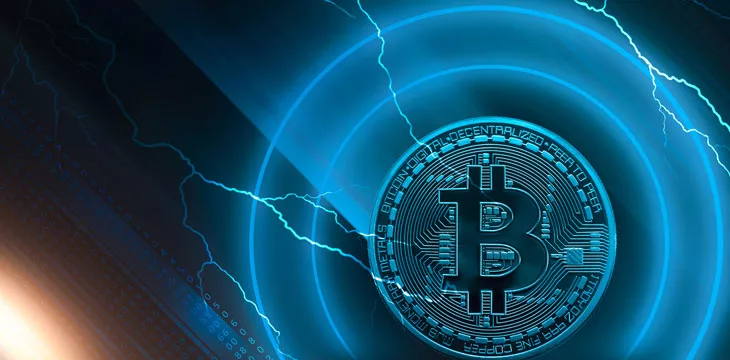On this episode of CoinGeek Discussions, Alex Vidal and Zachary Weiner spoke with artists and entrepreneurs in the blockchain space about their on-chain collections, why they decided to use Bitcoin to express themselves, and where Bitcoin will be a decade from now.
Guests included BitGod, George Siosi Samuels, and various artists in the Bitcoin ecosystem.
Who are the guests on this episode?
BitGod is an artist and co-founder of Quadrillion. Art. He says he and his team want to introduce a new era of creative collection. They envision establishing a new generation of digital art by combining old traditions with innovations.
How did BitGod discover Bitcoin? He first came across it in 2015 but got distracted by trading coins. After most of them went to zero, he learned more about Bitcoin and concluded it was here to stay. He witnessed the Magic Eden launch, fell in love with the idea of building on Bitcoin, and decided to get involved.
BitGod states his belief that Bitcoin is the best canvas. He thinks that while there are many significant collections, there aren’t enough established artists. He aims to change that.
Curtis Lepore is an artist who describes himself as “very new and still learning.” He’s always been into digital art, and when he heard about Ordinals, he knew it made sense to build on it.
Eric Okie is another artist who describes his journey to inscribing on Bitcoin as a “long, strange trip.” He heard about it back when it was $0.25, but like so many, he ignored it. As a free speech absolutist, he saw the potential when a friend introduced him to HandCash, and he was able to send tiny payments with a message attached. After signing up for Twitch, he followed the Ordinals Wallet guys and instantly fell in love with putting an idea on a satoshi.
Samuels is a well-known name to many in the BSV ecosystem. He’s a serial entrepreneur and works at the BSV Blockchain Association as a Bitcoin Ambassador. He first noticed Bitcoin while working at a co-working space in Australia in 2013; there was a lot of interest in the Bitcoin ATM. Samuels has been involved in Bitcoin ever since—witnessed the chain split, saw factions form with almost religious zeal, and ultimately ended up in BSV. Despite the ups and downs, he says it has been a pleasure.
What is your best memory in Bitcoin?
Weiner then asks the guests to share their best memories in Bitcoin.
BitGod says his best memories are teaching, working with artists and onboarding them, and being involved with Ordinals.
Lepore says being invited to participate in this discussion is his best memory. He loves being a part of the community in general.
Okie remembers fondly using Bitcoin for his first blind mint. This was a lot of fun, and he describes it as something like playing at the craps table.
Samuels says meeting everyone in Tokyo for the SV Conference is his favorite memory. He also enjoyed making money at his previous company, where he was known as an advocate for Bitcoin. Of course, he also introduced blockchain technology to an entire nation: Tuvalu.
IMSO Chris says his fondest memory was researching Bitcoin on Google (NASDAQ: GOOGL) in 2013 when he desperately needed some income. He quickly realized it was the solution to everything he feared and was depressed about. Like so many others, he wished he had gotten involved earlier.
What are you most excited about 5-10 years from now, and how will blockchain impact the world?
Samuels says that, in 15+ years, Bitcoin could become a replacement for SWIFT. He has a background working with banks, and replacing that outdated system is possible. He also foresees micropayments being a considerable force in the world. Many new business models based on micropayments can and will take off.
Okie says the tech curve is “darn near straight up.” Bitcoin will increase. He believes that, in time, we’ll stop valuing it in fiat and start thinking in satoshis. He loves that we now have a way to store historical family data, such as thoughts, pictures, etc, in an immutable way.
Lepore is “super bullish” on the Ordinals and the entire on-chain economy. He doesn’t know what it will look like in five years, but he knows it will be very different from today.
BitGod says Ordinals has “opened Pandora’s box.” It’s too early to tell where things will be in five or ten years. We need new, unique art to bring in and retain people. He’s confident that there are many new and exciting ideas we haven’t seen before coming down the pipe.

